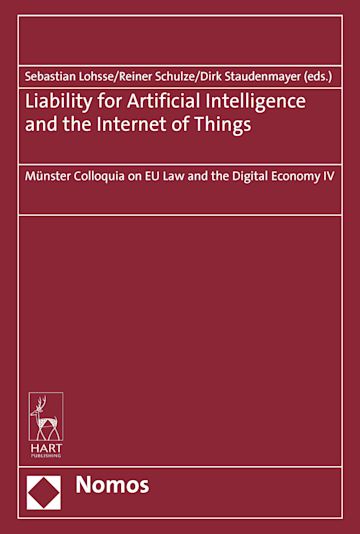
AI Accountability: Navigating Liability in Artificial Intelligence
Artificial Intelligence (AI) is advancing at a rapid pace, transforming industries and influencing various aspects of our daily lives. With this technological evolution comes the need to address the complex issue of AI liability. This article explores the challenges and considerations associated with determining accountability in the realm of artificial intelligence.
Understanding AI Liability
As AI systems become increasingly sophisticated, the question of who is responsible when things go wrong arises. AI liability refers to the legal and ethical responsibility for the actions and decisions made by AI systems. Determining liability in the realm of AI involves navigating a complex landscape of technological, legal, and ethical considerations.
The Role of Developers and Manufacturers
One aspect of AI liability centers around the developers and manufacturers of AI systems. Those who design and create AI algorithms are often considered responsible for the behavior of the AI. This includes ensuring that the algorithms are designed ethically, thoroughly tested, and comply with existing laws and regulations.
Challenges in Assigning Liability
Assigning liability in AI is challenging due to the dynamic and evolving nature of these systems. Unlike traditional products, AI continuously learns and adapts from new data, making it difficult to predict and control every possible outcome. Determining at what point a developer or manufacturer should be held liable for the actions of an AI system is a complex task.
Ethical Considerations in AI Development
Ethics play a crucial role in AI liability discussions. Developers and organizations must consider the ethical implications of their AI systems, including potential biases, discrimination, and unintended consequences. Responsible AI development involves addressing these ethical concerns proactively to minimize the risk of negative impacts on individuals and society.
Legal Frameworks and Regulations
The legal landscape surrounding AI liability is still evolving. Countries and regions are working to establish frameworks and regulations that define the responsibilities of those involved in AI development and deployment. These legal considerations aim to provide clarity on liability issues, ensuring that accountability aligns with the evolving nature of AI technologies.
AI in Critical Sectors: Healthcare and Autonomous Vehicles
Certain sectors, such as healthcare and autonomous vehicles, present unique challenges in terms of AI liability. In healthcare, AI systems assist in diagnostics and treatment decisions, raising questions about the responsibility of healthcare professionals and AI developers in case of errors. Similarly, the deployment of AI in autonomous vehicles brings forth questions of liability in the event of accidents or malfunctions.
Human Oversight and Control
To address the challenges of AI liability, ensuring human oversight and control is essential. Establishing mechanisms for human intervention and decision-making can help mitigate the risks associated with fully autonomous AI systems. Striking a balance between AI autonomy and human oversight is critical for accountable and responsible AI development.
Insurance and Risk Mitigation Strategies
As the AI landscape evolves, insurance products tailored to cover AI-related liabilities are emerging. Organizations are exploring risk mitigation strategies, including AI-specific insurance coverage, to protect against potential financial and legal consequences. These strategies aim to provide a safety net in the face of uncertainties related to AI liability.
International Collaboration for Standardization
Given the global nature of AI technologies, international collaboration is essential to standardize AI liability frameworks. Establishing common principles and standards can help create a cohesive approach to accountability, making it easier for organizations to navigate the complexities of AI liability across borders.
Educating Stakeholders and the Public
A crucial aspect of addressing AI liability is educating stakeholders, including developers, policymakers, and the general public. Promoting awareness and understanding of the implications of AI technologies fosters a more informed discourse on how to navigate the challenges of AI liability responsibly.
In conclusion, navigating AI liability requires a multidimensional approach that considers technological, legal, ethical, and societal factors. As AI continues to advance, establishing clear guidelines and frameworks for accountability will be pivotal in ensuring the responsible development and deployment of AI technologies. To explore more about AI liability and stay informed on the latest developments, visit Artificial intelligence liability.




